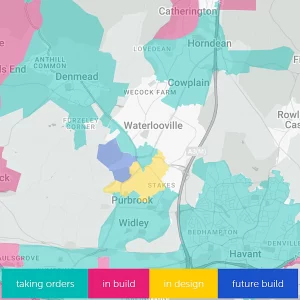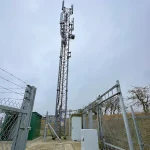Sponsored Links
Ofcom UK Illegal Broadband ISP Copyright File Sharing Code Facing Delays
Posted: 26th Aug, 2010 By: MarkJ
 The introduction of Ofcom's Draft Code of Practice for tackling online copyright infringement by customers of UK broadband ISPs may have to be delayed. The government had hoped to rush the code, which is a necessary part of the controversial 2010 Digital Economy Act (DEA), into operation next year but the sheer complexity of the process and a number of other issues are believed to be holding it up.
The introduction of Ofcom's Draft Code of Practice for tackling online copyright infringement by customers of UK broadband ISPs may have to be delayed. The government had hoped to rush the code, which is a necessary part of the controversial 2010 Digital Economy Act (DEA), into operation next year but the sheer complexity of the process and a number of other issues are believed to be holding it up.Ofcom originally launched the FIRST of THREE consultations on 28th May (the Online Copyright Infringement Initial Obligations Code). This set out how internet providers should tackle Copyright Infringement Reports (CIR) and send notifications (warning letters) to customers accused of unlawful file sharing (P2P) activity. A summary of this can be read here.
The first consultation closed on 30th July after just two months (summary of key ISP and Rights Holder responses) and was expected to be closely followed by two similar consultations. The remaining two would cover enforcement (appeals) and apportioning of costs. These were originally set to begin in July and September 2010 respectively, with both lasting until the end of this year.
However July has now come and gone, with August about to do the same, yet neither of the final two consultations have so far seen the light of day. The sheer weight of responses to the first consultation (around 180, by our count) and complexity of the issues involved must take some of the blame, with Ofcom perhaps starting to recognise that this process will be anything but straightforward.
Jim Killock, Executive Director of the Open Rights Group, said:
"[The UK Department for Business, Innovation and Skills] were able to give us some information about likely dates. Everything is falling behind schedule. The cost consultation will result in a ‘Statutory Instrument’ which will decide what portion of the scheme is paid by ISPs (ie, ends up on consumers’ bills) and whether Appellants will have to pay. We should have a public response by the end of this month. We won’t. This is holding Ofcom’s work in turn.
Additionally, the fact that TalkTalk and BT remain angry and opposed to the Bill’s implementation, and are contesting it via Judicial Review [full details] in the High Court, means that Ofcom cannot properly proceed with their work to get the Code implemented.
Government timetables are never quite as easy as they might seem, but these very tight deadlines, mandated by an Act that did not get proper scrutiny, are continuing to cause error and uncertainty, and failing to give proper reassurance about the effect on our fundamental rights."
"[The UK Department for Business, Innovation and Skills] were able to give us some information about likely dates. Everything is falling behind schedule. The cost consultation will result in a ‘Statutory Instrument’ which will decide what portion of the scheme is paid by ISPs (ie, ends up on consumers’ bills) and whether Appellants will have to pay. We should have a public response by the end of this month. We won’t. This is holding Ofcom’s work in turn.
Additionally, the fact that TalkTalk and BT remain angry and opposed to the Bill’s implementation, and are contesting it via Judicial Review [full details] in the High Court, means that Ofcom cannot properly proceed with their work to get the Code implemented.
Government timetables are never quite as easy as they might seem, but these very tight deadlines, mandated by an Act that did not get proper scrutiny, are continuing to cause error and uncertainty, and failing to give proper reassurance about the effect on our fundamental rights."
There are certainly more than a few concerns with the first consultation, not least surrounding the standards of evidence to be used against consumers (ISPs and consumer groups believe the basic data is too weak), content of the warning letters and how many CIR's before a notice is sent, a weak appeals process (how do those deemed guilty prove themselves innocent? It is an evidence less "crime"), the effect upon public/shared Wi-Fi and a lack of crucial economic and privacy impact assessments.
Furthermore the big ISPs, such as BT and TalkTalk UK, also don't like the idea of mobile operators and smaller internet providers effectively being excluded from Ofcom's initial measures. This is of course just one of many reasons why a proper preliminary economic impact assessment is needed; merely guesstimating the best solution is not best practice.
Ofcom is clearly beginning to get well behind its schedule and if the ORG's comments are anything to go by then that situation looks set to get worse. To conduct this fairly Ofcom must run the consultations one after the other (remember, these are complex issues, hence the need for three separate consultations), which as it stands would take us into early next year.
In addition we fully expect reactions to the final cost consultation to be even more venomous than any of those yet seen for the first, and if that doesn't encourage Ofcom and the government to do a proper impact assessment then we don't know what will.
Sadly, for now at least, the government and Ofcom still appear happy to base some of their assumptions on the highly questionable figures put out by Rights Holders. These surveys often appear to operate under the conclusion that every unlawful download is equal to one lost sale. In reality a teenager who downloads 500 music tracks or films would never have brought even close to that many in the first place.
Related News:
7th August 2010 - Summary of Key Replys to Ofcoms UK Draft Illegal Internet File Sharing ISP Code
8th July 2010 - UK Broadband ISPs Talk Talk and BT. Mount Digital Economy Act Legal Challenge
7th July 2010 - UK Internet Copyright Crackdown Triggers Mass Move to FREE Encrypted P2P VPN
5th July 2010 - Government Your Freedom Site Offers Repeal of UK Digital Economy Act
29th June 2010 - Early Day Motion to Scrap UK Digital Economy Act Receives Tepid Support
25th June 2010 - Journalists Unite to Stop UK Digital Economy Act and ISPs Blocking Legitimate Sites
1st June 2010 - UK Broadband ISPs Respond to Ofcoms Copyright Infringement Code
28th May 2010 - Ofcom UK Publishes Draft Illegal Broadband ISP File Sharing Code of Practice
Search ISP News
Search ISP Listings
Search ISP Reviews
Latest UK ISP News








Cheap BIG ISPs for 100Mbps+
150,000+ Customers | View More ISPs
Cheapest ISPs for 100Mbps+
Modest Availability | View More ISPs
Latest UK ISP News
Helpful ISP Guides and Tips
Sponsored Links
The Top 15 Category Tags
- FTTP (6799)
- BT (3881)
- Politics (3075)
- Business (2767)
- Openreach (2663)
- Building Digital UK (2512)
- Mobile Broadband (2475)
- FTTC (2142)
- Statistics (2128)
- 4G (2092)
- Virgin Media (2024)
- Ofcom Regulation (1779)
- 5G (1732)
- Fibre Optic (1604)
- Wireless Internet (1595)
Sponsored
Copyright © 1999 to Present - ISPreview.co.uk - All Rights Reserved - Terms , Privacy and Cookie Policy , Links , Website Rules






























